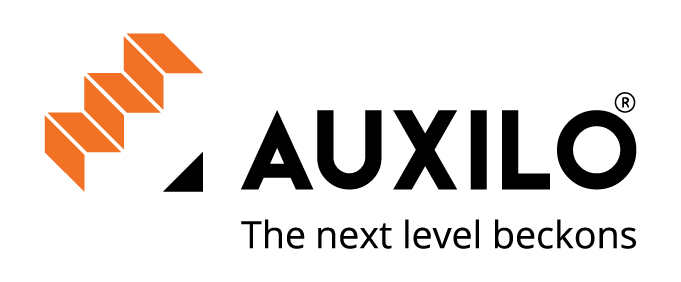Studying in New Zealand
A Guide to the Cost of Living and Studying in New Zealand
New Zealand is a beautiful country with a high-quality education system and a diverse culture.
However, studying in New Zealand doesn’t have to be an expensive affair for international students who need to cater to the cost of education and living there. Pursuing an affordable education in this country is possible if you are aware of what the cost of education and living here is. Thus, to help you structure your finances better, we have shared a comprehensive guide on the cost of living and studying in New Zealand and some tips on how to save money and manage your budget while living there
Tuition Fees
The tuition fees for studying in New Zealand depend on the type of qualification and university or school you opt for. There are eight universities in New Zealand, all of which are ranked among the top universities globally by QS World University Rankings. These universities provide international students with a high-quality education that helps them achieve their goals and learn to tackle challenges, collaborate with others, and innovate. The tuition fees for these universities range from NZ$ 22,000 to NZ$35,000 a year for undergraduate degrees and from NZ$ 19,000 to NZ$29,000 a year for master’s degrees. The tuition fees for doctoral degrees are much lower, ranging from NZ$ 6,500 to NZ$9,000 a year, depending on the funding they receive. However, some subjects, such as medicine and engineering, are likely to be more expensive than others. For example, an MBA program can cost between NZ$31,000 and NZ$50,000 a year. You can check the exact tuition fees for your chosen program and university on their official websites.
Accommodation
One of the major expenses for international students in New Zealand is accommodation. Different types of accommodation options are available for students, depending on their preferences, budget, and location. The most common types are:
- On-campus residence: Many universities in New Zealand offer international students on-campus residence facilities called the Halls of Residence. Living as a resident on-campus is a very affordable and convenient option, as you can enjoy the facilities and services provided by the university, such as meals, laundry, internet, and security. However, you must apply for it separately and well ahead of time to secure a slot. The rent for on-campus residence ranges from NZ$ 215 to NZ$ 555 per week, depending on whether you choose a fully-catered or self-catered option.
- Off-campus apartment: Another option is to rent an off-campus apartment or flat with other students or friends. This can give you more freedom and privacy and the opportunity to experience the local culture and lifestyle. However, you must pay for the rent, utilities, internet, and other expenses by yourself. The rent for off-campus apartments varies from city to city, but the average cost is around NZ$ 120 per week for a shared room and NZ$ 180 per week for a private room.
- Homestay: A homestay is a type of accommodation where you live with a local family in their home. This can be a great way to learn about New Zealand’s culture, language, and customs and make new friends and connections. However, you need to respect the rules and expectations of your host family and pay for your meals and other expenses. The average cost of a homestay is around NZ$ 250 per week, which usually includes breakfast and dinner.
- Hostel: A hostel is a type of accommodation where you share a dormitory-style room with other travelers or students. This can be a cheap and fun option, especially if you want a short-term stay or a temporary place to live. You can also meet people from different backgrounds and countries and join various activities and events organized by the hostel. However, you must compromise on your comfort and privacy and pay for your food and other expenses. The average cost of a hostel is around NZ$ 30 per night, which usually includes a bed, a locker, and a shared bathroom.
Food
Food is another essential expense for international students in New Zealand. The average cost of food and groceries in New Zealand is around NZ$ 100 per week, depending on your eating habits and preferences. You can save money by cooking your own meals at home, buying food in bulk, and shopping at local markets or discount stores. You can also enjoy the variety of dishes and cuisines available in New Zealand, such as fish and chips, pies, burgers, pizzas, sushi, noodles, and more. The average cost of eating out at a restaurant or cafe is around NZ$ 15 to NZ$ 25 per meal, depending on the type and quality of the food.
Health Insurance
Health insurance is a mandatory requirement for international students in New Zealand. It would be best to have a valid health insurance policy covering your medical and hospital expenses while studying in New Zealand. You can purchase a health insurance policy from your home country or a New Zealand provider. The average cost of health insurance in New Zealand is around NZ$ 600 per year, depending on the type and level of the policy. The benefits and coverage of the health insurance may vary, but generally, they include:
- Doctor visits and prescriptions
- Hospitalization and surgery
- Dental and optical care
- Emergency and ambulance services
- Repatriation and evacuation
Transportation
Transportation is another essential expense for international students in New Zealand. The average cost of transportation in New Zealand is around NZ$ 40 per week, depending on the distance and frequency of your travel. You can use various modes and options of transportation in New Zealand, such as:
- Bus: Bus is the most common and affordable mode of public transportation in New Zealand. You can find buses in most cities and towns, which can take you to different places and attractions. A bus ticket costs around NZ$ 3 to NZ$ 5 per trip, depending on the zone and distance. You can also buy a bus pass or card that gives you discounts and unlimited rides for a certain period of time.
- Train: Train is another mode of public transportation in New Zealand, especially in the main cities like Auckland, Wellington, and Christchurch. You can use trains to travel within and between the cities and enjoy the scenic views along the way. A train ticket costs around NZ$ 5 to NZ$ 10 per trip, depending on the zone and distance. You can also buy a train pass or card that gives you discounts and unlimited rides for a certain period of time.
- Taxi: A taxi is a mode of private transportation in New Zealand that can be convenient, fast, and expensive. You can find taxis in most cities and towns, which can take you to any destination. The average taxi ride cost is around NZ$ 3 per kilometre, plus a base fare and a surcharge. You can also use online platforms or apps like Uber or Ola to book a taxi or a ride-sharing service.
Budgeting Tips for International Students Studying in New Zealand:
- Create a Comprehensive Budget: Start by listing all your expenses, including tuition, accommodation, groceries, transportation, and leisure activities. Having a clear overview helps you allocate funds wisely.
- Explore Affordable Accommodation: Consider shared flats or homestays to reduce accommodation costs. Research various options and choose one that aligns with your budget without compromising comfort.
- Take Advantage of Student Discounts: New Zealand offers numerous discounts for students, including public transportation, entertainment, and cultural events. Always carry your student ID to avail of these cost-saving opportunities.
- Cook at Home: Eating out frequently can strain your budget. Embrace home cooking to save money on meals. Plan your weekly grocery shopping and prepare nutritious, budget-friendly meals.
- Utilize Public Transportation: Opt for public transportation instead of owning a car. New Zealand has well-connected and efficient public transit systems, providing a cost-effective travel method.
- Participate in Free or Low-Cost Activities: New Zealand’s natural beauty offers plenty of free or low-cost activities. Explore hiking trails, visit local parks, and engage in community events without putting a dent in your budget.
- Take Advantage of Part-Time Work Opportunities: Explore part-time work options allowed under your visa. Balancing work and studies can ease financial stress and provide valuable work experience.
- Set Aside an Emergency Fund: Allocate a portion of your budget to an emergency fund. Having financial reserves can help you navigate unexpected expenses without disrupting your overall budget.
- Compare Prices and Shop Smart: Compare prices online or at different stores before purchasing. Look for discounts and consider buying second-hand items when possible to save money.
- Monitor Your Spending: Regularly track your expenses to ensure you stay within your budget. Use budgeting apps or spreadsheets to monitor your spending patterns and adjust as needed.
- Understand Visa Regulations for Work: If you plan to work part-time, familiarize yourself with visa regulations. Ensure you comply with the allowed working hours and any other conditions stipulated in your visa.
The cost of living and studying in New Zealand depends on various factors, such as the type of qualification, university, accommodation, food, health insurance, and transportation you choose. An international student’s average cost of living and studying in New Zealand is around NZ$ 25,000 to NZ$ 30,000 per year (indicative), excluding the tuition fees. However, you can reduce your expenses by applying for scholarships, grants, or loans, choosing cheaper or shared accommodation, cooking your meals, using public transportation, and taking advantage of student discounts and deals. You can also find part-time jobs or internships to earn extra income and gain valuable skills and experience. Embark on your educational journey in New Zealand with personalized guidance. Book a 1-to-1 counselling session to kickstart your study adventure today!





































